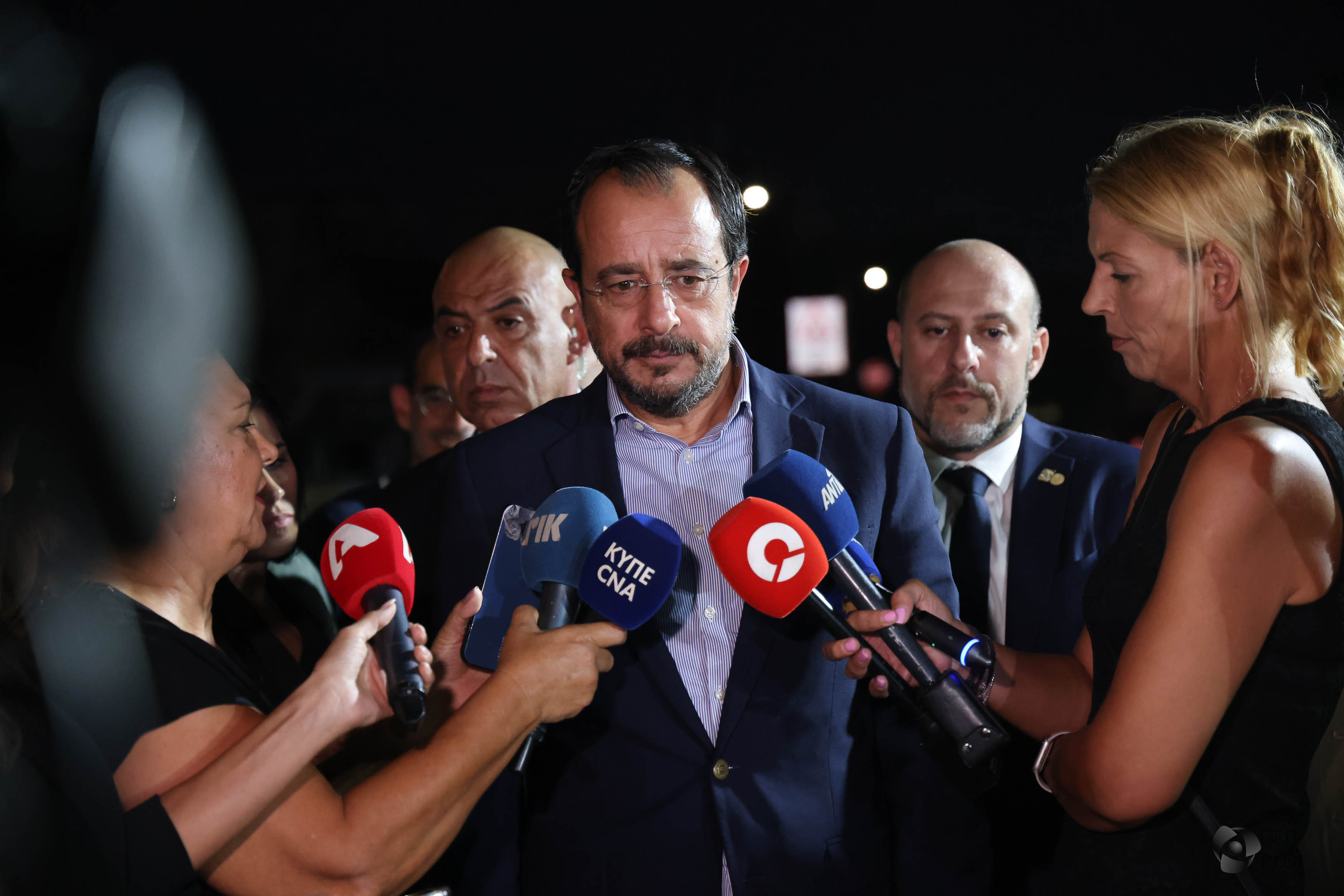Christodoulides reiterated that the government’s top priority is protecting the interests of the Cypriot people
President Nikos Christodoulides on Thursday spoke of “progress” in talks between Nicosia and Athens regarding the Great Sea Interconnector – the mooted subsea cable connecting the electricity grids of Cyprus and Greece.
In brief remarks to journalists, the president reiterated that the government’s top priority is “protecting the interests of the Cypriot people”.
He was alluding to the issue of what share of the project’s cost would fall on Cypriot consumers.
Asked about accusations of indecision on the part of the government, the president said they would take their time.
“We’re looking at all the data,” said Christodoulides. “Whereas some are thinking of the next elections, we think of the next generations.”
The president said he’ll be visiting Athens next week (September 19) for talks with the Greek prime minister. Their talks would include the interconnector issue.
On the same day, Israel’s energy minister called the Great Sea Interconnector (GSI) a “top priority” for his country.
In a post on X, Eli Cohen said he spoke with his Cypriot counterpart, and that “we underscored the strong relationship and ongoing cooperation between Israel and Cyprus and I emphasised the great importance of the Great Sea Interconnector project to Israel.”
Cohen said: “the project will connect Israel’s electricity grid to the European one through Cyprus and Greece and strengthen energy security in the region.”
He added: “This groundbreaking project is a top priority for Israel as it enhances regional energy security, provides access to diverse energy markets and strengthens Israel’s integration into the European energy network.”
Israel was part of the plans for the EuroAsia Interconnector, as the GSI was formerly known. But the Cyprus-Israel segment of the proposed subsea cable had apparently taken a backseat to the current talks between Cyprus and Greece on the section that will link their two countries.
Asked to comment on the Israeli official’s remarks, the president confirmed Israel’s ongoing interest in the project.
“We are discussing it with them [the Israelis]. But other countries as well are interested. My trip yesterday was no accident,” Christodoulides said, referring to his visit to Abu Dhabi earlier in the week.
Meanwhile more news trickled out suggesting Nicosia and Athens are inching closer to an agreement on the financing of the €1.9 billion interconnector.
Kathimerini reported that, since Tuesday’s high-level meeting held in Nicosia, the Greek government has sent the Cypriot government a document seeking to bridge their differences.
In this document, Athens purportedly proposes that the ‘geopolitical risk’– which includes possible interference by the Turkish navy with the laying of the cable – be split 50-50 between consumers in the two countries. Up until now, the geopolitical risk had been weighted 63 per cent for Cyprus, 37 per cent for Greece.
This proposal, it was said, might break the deadlock over the issue of the financial risk, given Nicosia’s reluctance to undertake most of the risk in the event the project gets nixed for reasons beyond the control of the project promoter.
Moreover, according to the same reports, Cyprus will start paying €25 million a year, for a period of five years until the end of 2029. This will give the project promoter a guaranteed revenue stream, covering part of the construction costs. In Greece meanwhile, consumers will pay a fee toward the project beginning on January 1, 2025.
In addition, the Cypriot state would become a shareholder in the holding company managing the interconnector project, by investing up to €100 million.







Click here to change your cookie preferences